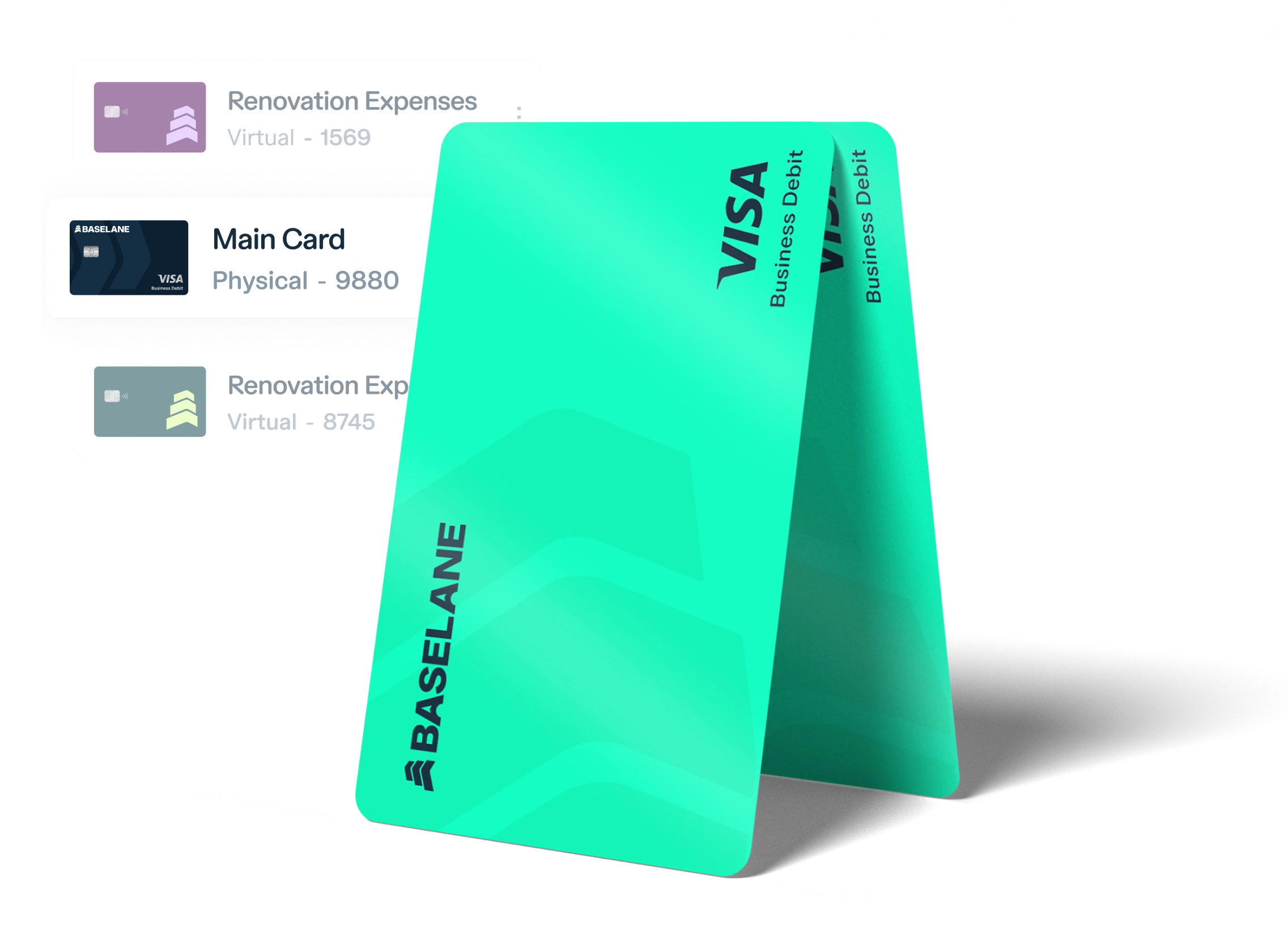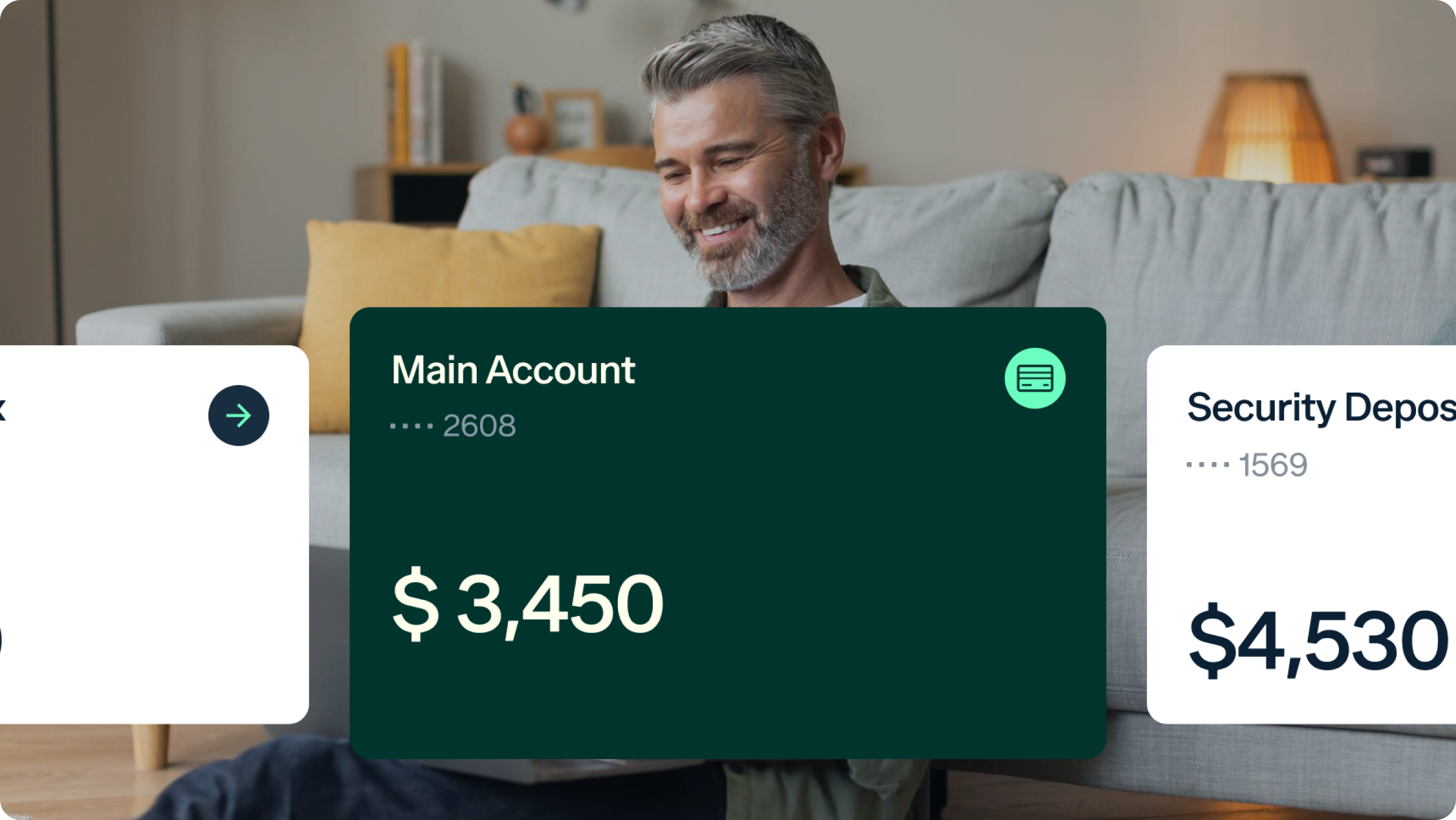Managing the financial side of rental properties can feel overwhelming for landlords and real estate investors. Tracking income, logging expenses, reconciling bank accounts, and preparing for tax season are essential tasks that require precision and efficiency.
The right financial software designed specifically for property management can simplify these processes significantly. This guide compares top software options to help you find the best fit for your portfolio’s financial needs.
Key takeaways
- Property managers need dedicated financial software for comprehensive income and expense tracking.
- Automated rent collection and bank reconciliation are crucial features for efficiency.
- Robust financial reporting provides vital insights into property performance and cash flow.
- Dedicated property management financial tools often offer better tax preparation support (like Schedule E) than general accounting software.
- Choosing the right software depends on your portfolio size, property types, required features, ease of use, and cost.
Key financial management features property managers need
Effective financial management is the backbone of a profitable rental property business. Property managers require robust accounting capabilities to understand the financial health of their investments. Integrating tools for tracking income, expenses, assets, liabilities, and equity is vital.
Comprehensive income and expense tracking
Tracking every dollar in and out of your rental business is fundamental. Financial software should offer detailed logging for various income sources like rent, late fees, and application fees. It must also provide granular expense categorization for everything from repairs and maintenance to property taxes and insurance.
Automated rent collection and payment tracking
Timely rent collection is paramount for managing cash flow. Software with automated rent collection features allows tenants to pay online, reducing delays and manual follow-up. Tracking payments in real time provides immediate visibility into who has paid and who is late.
Bank reconciliation
Matching your software’s financial records with your bank statements is essential for accuracy. Automated bank reconciliation features can significantly speed up this process. The software should easily sync with your bank accounts to match transactions, helping you catch errors or missed entries quickly. This ensures your books are always aligned with your actual cash flow.
Robust financial reporting
Detailed financial reports offer crucial insights into your properties’ performance. Look for software that can generate reports such as Profit & Loss statements, Cash Flow statements, and balance sheets. Real-time reporting enhances transparency and supports informed decision-making. These reports are vital for monitoring profitability and understanding financial trends across your portfolio.
Tax preparation support
Tax season can be complex for landlords with multiple properties and numerous expenses. Dedicated financial software often includes features specifically designed to simplify tax preparation.
Support for generating reports like Schedule E, which summarizes rental income and expenses, and potentially 1099 forms for contractors, is highly beneficial. This can save time and reduce the likelihood of errors when filing taxes.
Expense and contract management
Beyond simple expense logging, effective software tracks leases, contracts, and recurring expenses. Automated reminders for upcoming bills or lease renewals help prevent missed payments or opportunities. Managing these financial commitments within the software provides a centralized view of your ongoing obligations.
Multi-property accounting
For landlords managing multiple units or properties, the ability to track finances per property is non-negotiable. Software should allow you to tag transactions to specific properties for individual performance analysis easily. Unifying budgets, forecasts, and financial reports across an entire portfolio provides a comprehensive view. This is crucial for understanding which properties are performing best and where adjustments might be needed.
Cash flow management
Maintaining healthy cash flow is critical for covering expenses and planning for future investments. Financial software should offer tools to monitor incoming and outgoing funds. Tracking cash flow helps ensure sufficient liquidity, prevents shortages, and supports overall financial planning. Real-time cash flow insights enable proactive financial decisions.
Why you need dedicated property management financial software
While general accounting software like QuickBooks or Xero can track income and expenses, dedicated property management financial software offers specialized tools. These platforms are built with the unique needs of rental property owners in mind.
Features like automated rent collection, property-specific reporting, and built-in lease tracking are often standard. Using specialized software for real estate management can simplify financial management compared to general software.
Dedicated tools automate tasks specific to rentals, like applying late fees or generating reports formatted for landlords. They understand rental income complexities and various property-related expenses. This specialization saves time and reduces the need for manual workarounds often required with generic accounting programs.
Top financial software options for property management
Choosing the right tool is a significant step in streamlining your operations. Here is a look at some of the best financial software for property management, considering features based on the research.
Baselane
Baselane is designed to be a comprehensive financial platform for landlords, integrating banking, bookkeeping, and rent collection. It offers detailed income and expense tracking with automated categorization and tagging by property and Schedule E category.
Bank reconciliation is automated, providing detailed financial reporting, including Income statements and Cash Flow statements. It supports tax preparation with an accounting tax package and Schedule E report.
Baselane includes online rent collection with automated invoicing and payment tracking, directly integrated into its financial system. It supports multi-property accounting, allowing for unlimited accounts to organize finances by property.
The platform provides tools for cash flow management and offers unlimited checking/savings accounts for organizing funds. Baselane is suitable for independent landlords seeking integrated financial tools.
Buildium
Buildium offers a comprehensive property management platform with robust accounting features. It provides detailed income and expense tracking and automated bank reconciliation. Buildium offers comprehensive financial reporting capabilities. It supports tax preparation, including 1099 forms.
Buildium includes online rent collection and supports multi-property accounting. It also offers cash flow management tools. This platform is designed for property managers needing a full suite of features beyond just financials.
REI Hub
REI Hub is a rental property accounting software focused specifically on real estate investors. It offers income and expense tracking tailored for rentals. REI Hub provides property-specific financial reports, including Property P&L. It supports tax preparation, specifically Schedule E.
REI Hub does not include online rent collection or double-entry accounting. It supports multi-property accounting and cash flow management. This software is best suited for investors primarily focused on detailed accounting and tax reporting without needing integrated property management features.
Landlord Studio
Landlord Studio provides property management software with a focus on income and expense tracking and reporting. It offers detailed income and expense tracking with receipt scanning capabilities. Bank reconciliation is supported, and it offers over 15 financial reports. Landlord Studio supports tax preparation with a Schedule E report.
Landlord Studio includes online rent collection. It supports multi-property accounting, though the comparison indicates it might have limitations for scaling to a large number of units compared to other platforms. It also offers cash flow management tools. This software is suitable for landlords who value mobile access and robust expense tracking features.
FreshBooks
FreshBooks is primarily designed as accounting software for small businesses, but it offers features applicable to property management. It provides detailed income and expense tracking and automated bank reconciliation.
FreshBooks offers customizable financial reporting and supports tax preparation with reports and deduction tracking. It includes online rent collection.
FreshBooks supports tracking income and expenses for multiple projects or businesses, which can be adapted for properties. It offers cash flow management. While not built exclusively for property management, it can be a viable option for landlords who are comfortable adapting general accounting software.
Comparison Table Financial Features at a Glance
Here is a comparative view of key financial features across the discussed software options based on the research provided:
| Feature | Baselane | Buildium | REI Hub | Landlord Studio | FreshBooks |
|---|---|---|---|---|---|
| Income & Expense Tracking | Yes (Detailed) | Yes | Yes (Rental Focused) | Yes (Receipt Scan) | Yes |
| Bank Reconciliation | Yes (Automated) | Yes (Automated) | Yes | Yes | Yes (Automated) |
| Financial Reporting | Yes (Detailed) | Yes (Comprehensive) | Yes (Property P&L) | Yes (15+ reports) | Yes (Customizable) |
| Tax Prep Support (e.g., 1099s) | Yes | Yes | Yes (Schedule E) | Yes (Schedule E) | General customer support with no real estate specialization |
| Online Rent Collection | Yes | Yes | Yes | Yes | Yes |
| Multi-Property Support | Yes | Yes | Yes | Yes (Limited Scale) | Yes (for multiple businesses/projects) |
| Cash Flow Management | Yes | Yes | Yes | Yes | Yes |
| Double-Entry Accounting | Yes | Yes | No | No | Yes |
| Lease/Contract Tracking | Yes | Yes | No | Yes | No |
| Mobile App | No | Yes | No | Yes | Yes |
Banking Built for Real Estate Businesses
Open unlimited accounts for properties and security deposits with no monthly fees.
How to choose the right financial software for your portfolio
Selecting the ideal financial software requires careful consideration of your specific needs and goals. Not all platforms are created equal, and the best fit for one landlord might not be suitable for another. Evaluating several factors will help you make an informed decision that supports your real estate investment strategy.
Consider your portfolio size and type
The number and type of properties you manage heavily influence software requirements. A landlord with one or two units might need simpler features than someone managing a large multi-family building or several short-term rentals.
Some software is better suited for property management for small landlords, while others scale better for larger portfolios. Consider whether you manage residential, commercial, or vacation rentals, as some software specializes in particular types. Short-term rental managers might look at short term property management software.
Assess necessary financial features
Prioritize the financial features most critical to your operations. Do you need robust double-entry accounting, or is detailed income/expense tracking sufficient? Is integrated rent collection a must, or do you use a separate system?
Identify your core pain points, such as tax preparation complexity or difficulty tracking expenses across properties, and find software that specifically addresses them. This ensures the software delivers the functionality you actually need.
Evaluate ease of use and support
A powerful tool is only effective if you can use it efficiently. Consider the software’s interface, onboarding process, and available customer support. Does it offer a mobile app for managing finances on the go? Look for reviews or trial periods to gauge how intuitive the software feels to you.
Reliable support is crucial if you encounter issues or have questions about using the features. Landlords interested in a smooth experience might look for a user-friendly landlord app.
Understand pricing models and total cost
Software pricing varies significantly, from free options with limited features to expensive enterprise-level solutions. Some charge per property, per unit, or offer tiered plans based on portfolio size. Consider the total cost, including setup fees, transaction fees (for online payments), and any premium add-ons.
Compare the cost against the time and effort the software is expected to save you. A cost-benefit analysis can help justify the investment.
Look for integration capabilities
Think about how the financial software fits into your existing workflow. Does it integrate with other tools you use, such as banking accounts, tax software, or tenant screening services?
An integrated solution like Baselane combines banking, rent collection, and bookkeeping, reducing the need to switch between multiple platforms. Look for compatibility that streamlines your overall property management process.
Benefits of using the right financial software
Implementing suitable financial software goes beyond simply tracking numbers; it actively contributes to the health and growth of your rental business. The advantages extend to saving valuable time, increasing accuracy, improving strategic decision-making, and reducing stress, especially during tax season.
Saving time and reducing errors
Automating tasks like rent reminders, payment processing, and transaction categorization dramatically cuts down on manual work. Less manual data entry means fewer human errors in your financial records.
According to FreshBooks, their users save up to 553 hours and $7000 in billable hours annually. This efficiency allows landlords to focus on other aspects of their business or personal life. Adopting rental property management software is a direct path to saving time.
Improving financial transparency and reporting
Real-time access to financial data and comprehensive reports provides a clear view of your portfolio’s performance. You can quickly generate income statements, cash flow reports, and expense summaries.
This transparency helps you understand profitability, identify areas for cost reduction, and make data-driven decisions. Better reporting supports better control over your finances. Integrated property rental management software offers this enhanced visibility.
Simplifying tax preparation
Dedicated software organizes your income and expenses according to categories relevant to rental properties, like those on Schedule E. Generating necessary reports for tax filing becomes much simpler and less time-consuming.
Some platforms can even help generate 1099 forms for contractors. This significantly reduces the stress and complexity associated with annual tax preparation.
Enhancing Cash Flow Management
With clear insights into income collection and upcoming expenses, you can better manage your cash flow. Software that tracks payments and predicts future cash positions helps prevent liquidity issues. You can make informed decisions about investments, repairs, or distributions based on accurate cash flow forecasts.
This proactive approach to managing funds ensures the financial stability of your rental operations. Efficient diy rental property management relies heavily on strong financial tracking.
Bottom line
Choosing the right financial software is a critical step towards efficiently managing your rental properties and maximizing profitability. Dedicated platforms offer features tailored specifically to the needs of landlords, from automated rent collection to tax-ready reporting. By evaluating your portfolio size, required features, ease of use, and cost, you can find a solution that saves you time, reduces errors, and provides valuable financial insights.
Taking control of your rental finances empowers you to make smarter decisions and focus on growing your real estate business. Explore options that provide integrated tools to streamline your day-to-day tasks and offer financial clarity. With the right software partner, you can turn financial busywork into a strategic advantage.
FAQs
Property management financial software is a specialized tool designed for landlords and property managers to track income, expenses, bank transactions, and generate financial reports specifically for rental properties. It helps automate bookkeeping, rent collection, and tax preparation tasks.
Property management software assists with taxes by tracking and categorizing income and expenses according to relevant tax forms, such as Schedule E. It can generate reports like income statements and expense ledgers, making it easier to compile the necessary information for tax filing.
Dedicated property management accounting software often offers features specifically tailored for rentals, like integrated rent collection, property-specific reporting, and landlord-centric expense categories. These specialized tools can simplify workflows and reporting compared to adapting general accounting software for rental properties.







